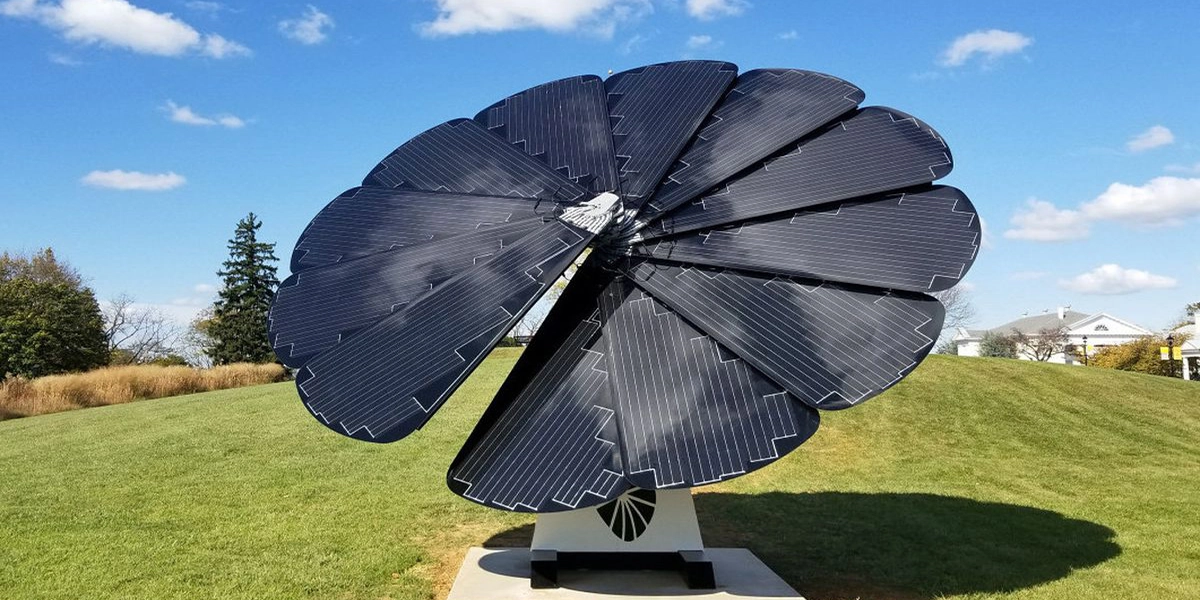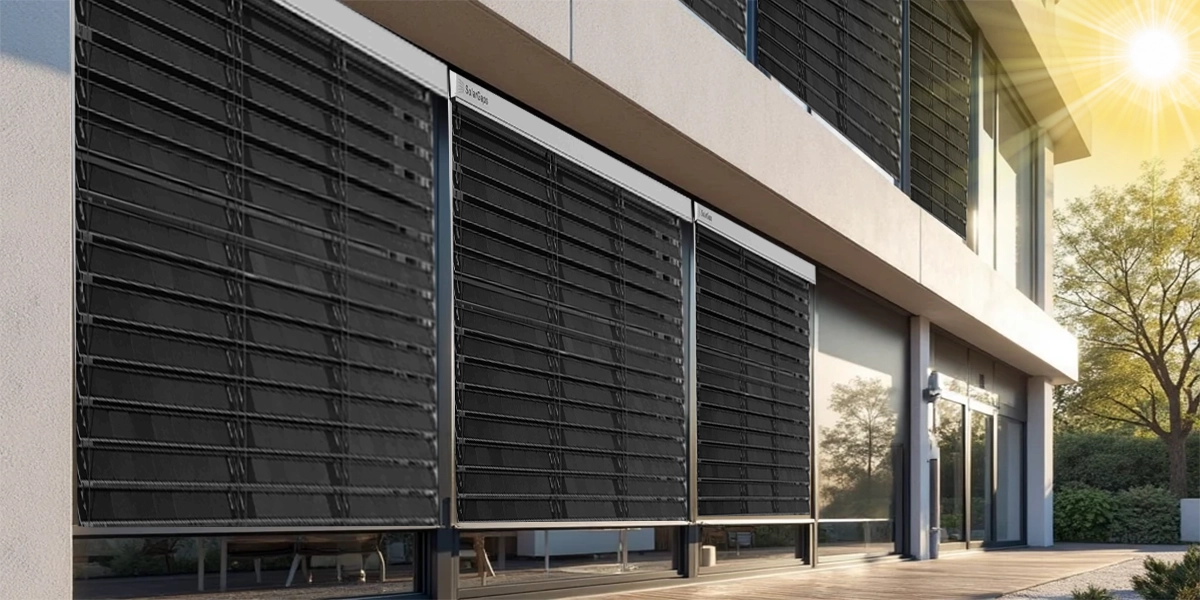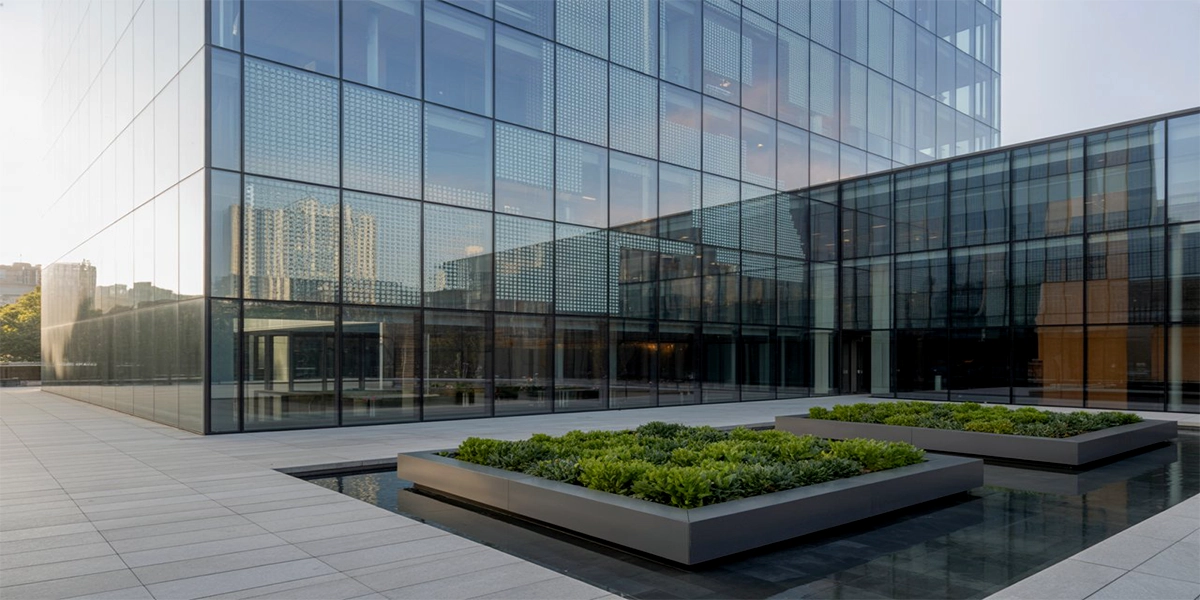- Updated On: June 30, 2025
Flexible Solar Panels: Innovative Technology to Harness Clean Power
As solar energy becomes the primary power source, technology is also advancing rapidly. Researchers are exploring new ways to harness clean energy other than rooftop and ground mount installations. Among modern innovations, flexible solar panels are bringing portability, versatility, and innovation to solar. Unlike traditional panels, these solar panels are lightweight, flexible, and ideal for non-standard surfaces such as RV roofs, tents, boats, and even curved buildings. Their sleek design and ease of installation have made them a top choice among adventurers and homeowners who do not have suitable roofs or places for solar installation.
The foldable panels offer a practical and environmentally friendly option for your lifestyle, whether you are traveling or looking to maximize the energy efficiency of your home. Also, with the advancement of solar technology, they are becoming more efficient and reliable for utilizing clean energy anywhere.
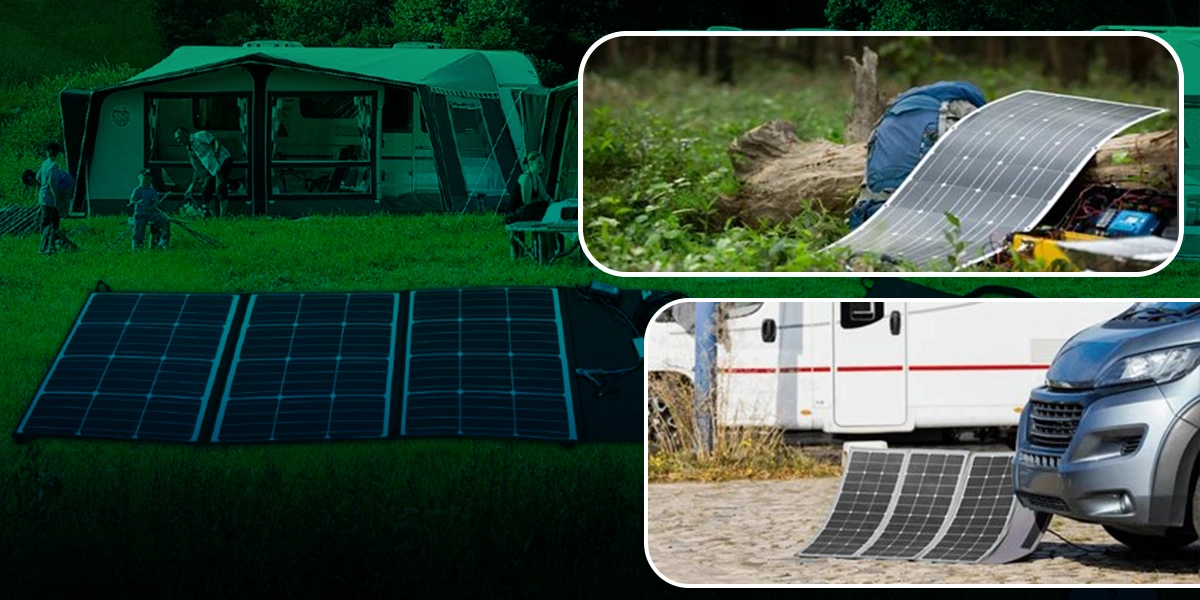
In this article, we will take a deeper look at the working of flexible solar panels and in what conditions they are suitable for you. Also, we will compare them with traditional solar panels to help you decide the best option for your needs.
What are flexible solar panels?
Silicon wafers make up a typical monocrystalline or polycrystalline solar module. Usually reaching a thickness of 200 micrometers, they are marginally thicker than human hair. Cutting silicon wafers to a few micrometers width is necessary to manufacture a flexible solar panel. These extremely thin silicon wafers give solar panels unique features, including flexibility in some designs. Recent developments in organic solar cells are the result of research conducted at the Massachusetts Institute of Technology. Researchers have discovered a method to use organic materials with graphene electrodes in place of silicon as the foundation for solar cells. The brittleness of common electrodes was a limiting factor in panel flexibility. This technique may result in panels that are thinner, more flexible, and more stable because graphene is transparent and flexible.
Furthermore, flexible solar panels that are currently accessible to homeowners are “thin film panels.” A thin film module has a much thinner profile and is more flexible than a normal silicon panel as its layers are more than 300 times smaller. Flexible thin-film solar panels are a good option for camping and outdoors because they are lightweight and long-lasting.
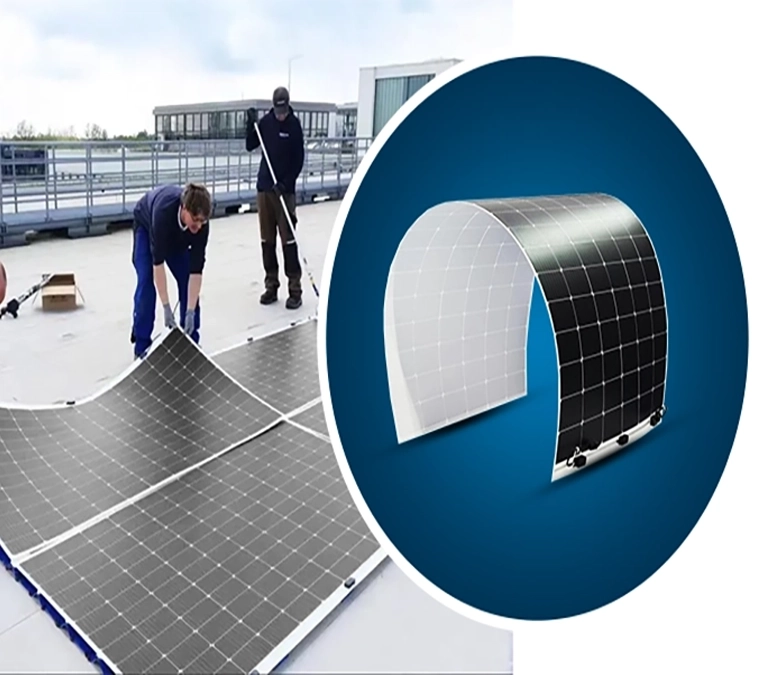
How do flexible solar panels work?
Many flexible solar panels are made using the same kind of photovoltaic silicon solar cells as traditional modules. However, they are very lightweight and flexible because their solar cells are more than 300 times thinner than rooftop solar panels. In contrast to conventional solar panels, the surface of a flexible panel is not shielded by metal or glass. Rather, a polymer called ETFE, which is easily pliable, covers it. This keeps the cells’ versatility and makes the panel as light and thin as feasible. However, there is a price for more flexibility. They are less durable and efficient than traditional solar panels due to the same design.
What are the other components of a flexible solar panel kit?
While some folding solar panels are offered separately, others are included in solar panel kits. You will need to buy a few more accessories if you decide to install flexible solar panels, such as:
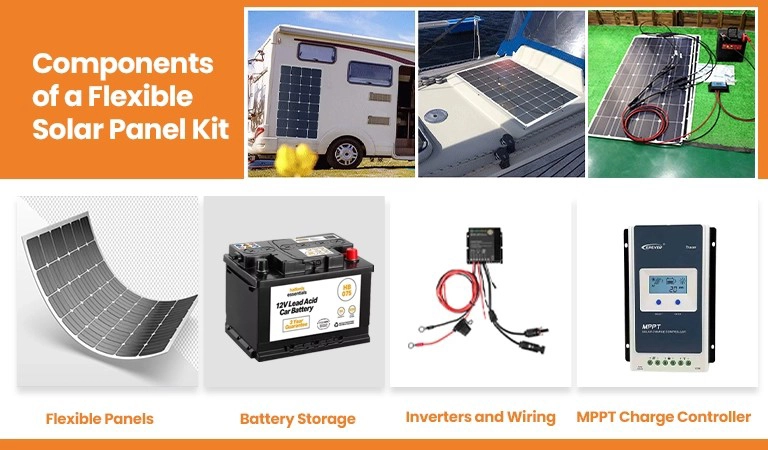
● Inverters and Wiring:
Solar inverters transform the DC electricity produced by your flexible solar panels into usable alternating current (AC) electricity.
● Portable Battery:
To store excess power during the day and use at night for camp lighting or device charging
● MPPT charge controllers:
Although they are not required for every flexible solar, system charge controllers are essential for off-grid systems that use solar batteries. To prevent overcharging, charge controllers regulate your solar battery.
How much do foldable solar panels cost?
The cost of flexible panels varies based on the size, wattage, and brand. Although most household solar panels have a 400-watt rating, less expensive flexible panels may only produce 50 watts. The output of more expensive flexible solar panels may reach 175 watts. The equipment required to operate the panels may also impact the price.
What are the best uses of flexible solar panels?
Flexible solar panels have many advantages due to their special qualities. The best applications include:
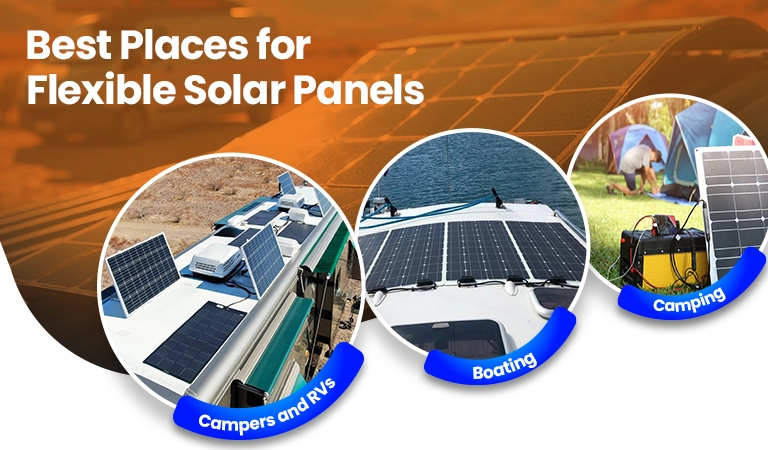
Campers and RVs:
Installing flexible solar panels on your camper or RV is simple and enables you to use solar energy to power your lights and other appliances. Additionally, you will be able to use solar power throughout the day to recharge your batteries so that they are ready for usage at night. You may travel more freely when you use renewable energy to charge your batteries because you won’t have to go around looking for locations to hook up your RV.
Boating:
To keep equipment like radio systems, navigation lights, and autopilots operating, boats need a lot of electricity. In addition to supplying your boat the energy it requires, flexible solar panels may help maintain the battery’s charge. You can use these panels on big boats to reduce the need for the engine or on smaller boats, such as sailboats, to help keep the battery completely charged. You can mount flexible solar panels, which are lightweight and versatile, on unused parts of your boat to generate solar energy.
Camping:
To ensure that you never run out of power during the night, you can use a flexible solar panel to charge a portable solar battery, your phone, or any other appliances running out of charge during a long hike or camping trip. You will need to attach the flexible panel to your backpack or tent and use the power it generates to charge your electronics.
What are the pros and cons of flexible panels?
The primary benefit of a flexible solar system is that you can fit them anywhere, whether it is in your hiking backpack, boat, or RV. Moreover, the easy installation process makes them a popular choice for off-grid solar systems. Let’s have a look at the pros and cons of these panels:
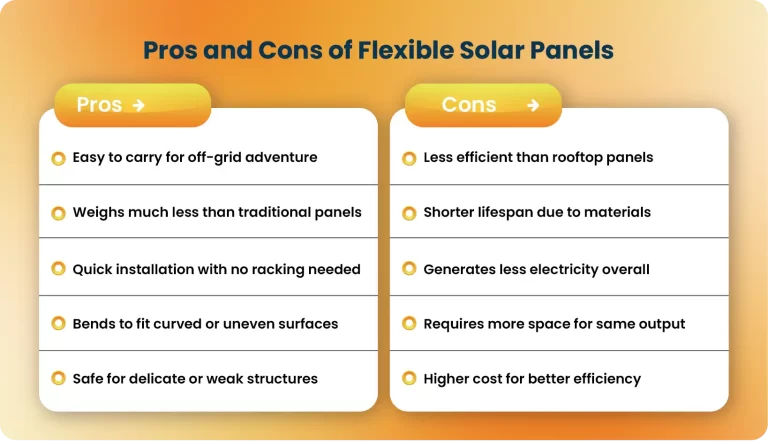
Why are foldable solar panels not good for rooftop solar?
The biggest obstacle to thin film or flexible solar panels is their lower efficiency compared to traditional solar panels. Currently, average monocrystalline or polycrystalline panels have efficiency ratings of 16–20%. In contrast, thin-film solar panels usually have an efficiency of 7 to 15 percent. It means that you will require more modules to fulfill your energy needs which may cost you much more.
Furthermore, many home rooftop solar projects aren’t the right fit for flexible panels because there may not be enough roof area to generate the energy you need to power your home. Flexible solar panels are the ideal choice for small solar projects on surfaces like boats or RV roofs because of their flexibility and resilience, which allow them to withstand damage that permanent roofs would not. For these smaller, mobile solar systems that don’t require a lot of energy, flexible panels are perfect because of their endurance and lighter weight.
If you are looking for the best solar solutions, Solar SME is a trusted local solar installer near you. According to your specific needs, we design tailored and affordable solutions for you. You can Get a FREE Quote with our smart solar calculator for estimating your solar savings.
Related Articles:
SmartFlower solar panels stand out as a brilliant fusion of technology and elegance. These sunflower solar panels are best suited for homes and businesses interested in going green without compromising on looks. explore how they work and unique features!
Solar blinds are becoming a home technology game-changer. Window blinds not only control sunlight but also collect sunlight, converting natural light into clean energy from your windows. Explore how they work and what to consider before choosing them.
A recent innovation is transparent solar panels, which allow you to harness solar power without compromising aesthetics or efficiency. In this article, we will compare them with traditional solar panels to analyze which works well for you.

